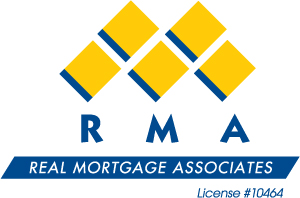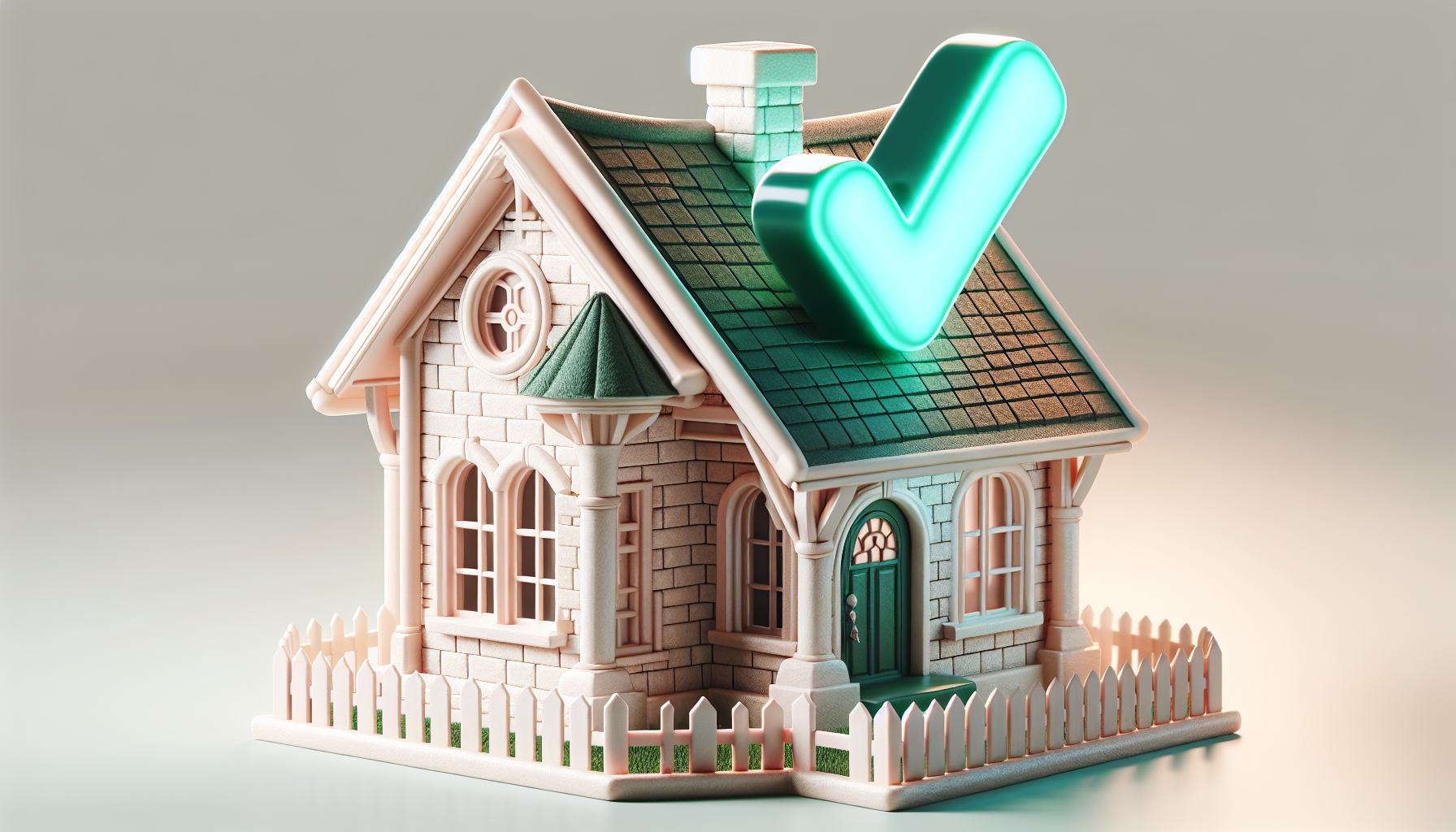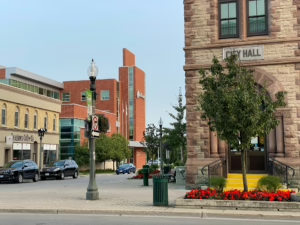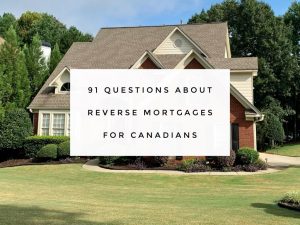Do reverse mortgages in Canada mean losing your home? Let’s bust this myth and more. In this no-nonsense guide, we dispel the top ‘Canada reverse mortgage myths’ to bring you the unvarnished truth. By addressing each myth with concrete facts, you will be informed and ready to assess whether a reverse mortgage aligns with your financial goals. No fluff, just critical clarity on a topic that’s crucial for many Canadian retirees.
Canada Reverse Mortgage Rules:
- Homeowners maintain 100% ownership of their homes with a reverse mortgage, and no monthly payments are required, debunking common myths about losing one’s home or being evicted for non-payment.
- Reverse mortgage costs are similar to traditional mortgages, with upfront fees and higher interest rates due to the lack of monthly payments. However, under certain conditions, repayment is possible without penalties.
- Reverse mortgages don’t negatively impact government benefits like OAS and GIS, the income is tax-free and includes a no-negative equity guarantee, ensuring heirs won’t owe more than the home’s value.
Bob from HomeEquity Bank (providers of CHIP reverse mortgages) explains some common myths of reverse mortgages:
Debunking Reverse Mortgage Misconceptions
Reverse mortgages have been a game-changer for many Canadian seniors, offering financial security, peace of mind, and a more comfortable lifestyle. However, a cloud of misunderstanding often surrounds them, fueled by reverse mortgage myths. Let’s take a moment to debunk some of these common misconceptions, shall we?
Firstly, let’s address the elephant in the room – homeownership. A widespread belief is that taking a reverse mortgage means surrendering your home to the bank. That’s a myth! Homeowners retain 100% ownership of their homes with a reverse mortgage and can live in their homes as long as they wish. In fact, reverse mortgages are designed to provide financial relief, not to create additional stress.
Now that we’ve cleared the air about homeownership let’s move on to age requirements and the fear of eviction.
Retaining Home Ownership
One of the most common misconceptions about reverse mortgages is that you’ll lose ownership of your home. This is simply untrue. When you secure a reverse mortgage, you retain the title and maintain full control over your property. The bank does not take ownership of your home; instead, you are simply accessing the equity you’ve built up over the years.
As long as you continue to live in your home, pay your property taxes and insurance, the home remains yours! We dig into that more in our complete guide to reverse mortgages.
Age Requirements
A common belief is that reverse mortgages are only for the very elderly. This is another misconception. In reality, all title holders must be at least 55 to qualify for a reverse mortgage in Canada. So, once you cross the 55-year milestone, you can start considering a reverse mortgage to leverage your home’s equity.
And, unlike other forms of credit (like a traditional mortgage), your credit history doesn’t affect your eligibility for reverse mortgages. So, for most Canadians considering reverse mortgages, age is not a barrier but rather a gateway to financial flexibility!
Eviction Fears
There’s a fear among potential reverse mortgage customers that they could be evicted from their homes for missing payments. But here’s the catch – with reverse mortgages in Canada, there are no scheduled payments!
As long as you meet your property obligations, like insurance premiums and property taxes, your home remains your castle.
So you can live in your home, enjoy your retirement, and let the equity in your home cover the loan’s interest.
The Truth About Reverse Mortgage Costs
Now that we’ve debunked the common myths, let’s untangle another tangled aspect of reverse mortgages – the costs. Just like any financial product – an existing mortgage for instance – reverse mortgages come with certain costs. But don’t worry, we’re here to break it down for you.
Firstly, there are upfront costs to cover essential processes for the loan arrangement. This includes an appraisal of your property, obtaining independent legal advice, and a one-off closing and administrative fee. These costs are similar to the costs of arranging a traditional mortgage.
But the costs don’t stop at the application process. Let’s delve deeper into interest rates and prepayment options.
Application Process Expenses
Applying for a reverse mortgage comes with certain expenses, much like any other mortgage product. For instance, an appraisal of your home is necessary to determine its value. You’re also required to obtain independent legal advice. This is a critical step in the application process and in some cases, may even be a prerequisite for the mortgage. So, while there are costs associated with a reverse mortgage, they’re not out of the ordinary when compared to other financial products.
Interest Rates Comparison
Interest rates are a critical aspect of any loan, and reverse mortgages are no different. Generally, reverse mortgage interest rates are one or two percentage points higher than for traditional mortgages. This is mainly due to the absence of monthly payments and the longer loan term.
The variable rates of reverse mortgages are tied to the Bank of Canada Prime Rate which is subject to fluctuations. Over time, these rates accrue, influencing the total cost of the loan. So, while the rates might be slightly higher, remember the convenience and flexibility they offer!
Prepayment Options
While reverse mortgages don’t require regular monthly payments, homeowners have the flexibility to repay the principal and interest whenever they choose. However, there may be a prepayment charge if they choose to discharge the entire balance at once. It’s a bit like a conventional mortgage, which often includes prepayment charges, especially for full balance discharge.
There are also options to refinance your reverse mortgage if your property’s value has risen substantially, although this could affect your home’s equity and incur prepayment penalties. So, the repayment options are flexible, but it’s crucial to understand the potential charges.
Reverse Mortgages and Your Heirs

How will a reverse mortgage affect your estate in Canada?
Another concern often raised about reverse mortgages revolves around their impact on your heirs. So, let’s break it down. Reverse mortgages in Canada are designed with protections to prevent heirs from being burdened with significant debt after your passing. In fact, reverse mortgages can make the estate settlement process smoother.
After your passing, the loan typically becomes due and can be repaid through the sale of your home by your estate. If a spouse survives you, they are not required to make any payments until they choose to move or sell the home. Your heirs have the right to settle the reverse mortgage by either repaying the loan amount or selling the property, thereby never owing more than the home’s fair market value.
Once the reverse mortgage is repaid, any remaining equity from the sale of the home becomes capital that your heirs can inherit and distribute amongst themselves.
Inheritance Considerations
After your passing, your heirs may choose to keep the home by repaying the reverse mortgage using other funds or by refinancing the property. Alternatively, they can choose to sell the home and benefit from any remaining equity. This is a critical point to discuss with your family members, especially if they have expectations about inheriting the property.
Importantly, if you have a CHIP Reverse Mortgage and pass away, there is no prepayment charge, which can alleviate financial pressure on your heirs during the estate settlement.
No Negative Equity Guarantee
One of the key protections built into reverse mortgages in Canada is the no negative equity guarantee. This ensures that you or your heirs will never owe more than the fair market value of your home, regardless of how much you’ve borrowed or how much the home’s value has changed over time. If the mortgage balance exceeds the home’s value, the lender bears the loss, and neither you nor your heirs incur extra debt.
So, the equity in your home is protected, giving you peace of mind.
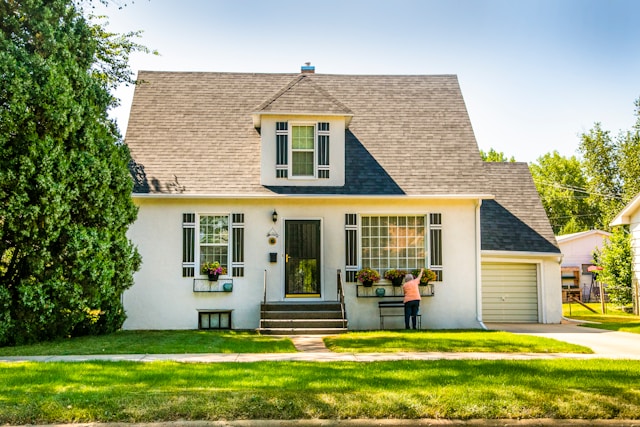
Stay in your home through retirement with a reverse mortgage
Communication with Family Members
Open and honest communication with family members is crucial when considering a reverse mortgage, as they may have heard some of the most common misconceptions about reverse mortgages in Canada.
This can alleviate anxieties and ensure that your financial decisions align with your family’s best interests. Discussing the impact of a reverse mortgage on home equity and the estate can help address their concerns and misconceptions.
Financial experts recommend involving your family in the decision-making process and seeking their input. It’s also beneficial to seek independent legal advice to make an informed decision.

Talk with your family about considering a reverse mortgage
Government Benefits and Tax Implications
Wondering how a reverse mortgage might affect your government benefits or tax situation? Well, we have good news. The income from a reverse mortgage is tax-free and does not need to be reported on a tax return. This can provide additional cash flow without increasing your taxable income.
And what about your government benefits? You’ll be pleased to know that reverse mortgage payments do not impact Old Age Security (OAS) or Guaranteed Income Supplement (GIS) benefits. In fact, since reverse mortgage income is not taxable, you can retain your full government benefits. So, not only does a reverse mortgage provide financial flexibility, but it also does so without impacting your benefits or tax situation.
Impact on OAS and GIS
Many seniors worry that accessing a reverse mortgage might affect their eligibility for government benefits like Old Age Security (OAS) and the Guaranteed Income Supplement (GIS). However, the funds from a reverse mortgage are not considered taxable income in Canada, and therefore do not affect your eligibility for these benefits.
So, you can access up to 55% of your home equity through a reverse mortgage while maintaining your OAS and GIS benefits.
Tax-Free Cash Flow
One of the most appealing aspects of a reverse mortgage is that it provides tax-free cash flow. The funds received from a reverse mortgage are not taxable as they are considered loan advances, much like traditional mortgages. By choosing a reverse mortgage, you can strategically preserve your retirement savings by avoiding the depletion of registered savings accounts, which can result in additional tax benefits.
So, not only does a reverse mortgage provide financial flexibility, but it does so in a tax-efficient way.
Choosing the Right Reverse Mortgage Lender

A reverse mortgage broker can help you choose the best reverse mortgage lender
Selecting a reverse mortgage lender is an important decision.
The most common lenders are
- Bloom Finance
- CHIP (by Home Equity bank)
- Equitable Bank
You want to ensure you’re choosing a reliable and reputable lender who offers a product that suits your needs. In Canada, reverse mortgage lenders are regulated by the Office of the Superintendent of Financial Institutions (OSFI). This ensures that lenders adhere to guidelines, enforce rules, and prioritize consumer interests. But there’s more to choosing a lender than just regulation.
See how CHIP and Bloom finance reverse mortgages compare here.
A reverse mortgage broker can help you look at the various lenders and choose the best option for your retirement.
Regulated Institutions
Choosing a lender that is regulated by the OSFI ensures robust risk management and provides financial safety for consumers. The OSFI sets guidelines for risk management in real estate secured lending products, including provisions that apply specifically to reverse mortgages. They advocate for a prudent maximum loan-to-value ratio of 65% at origination to manage borrower debt risk.
So, choosing a regulated institution is a solid first step in selecting a reverse mortgage lender.
Reverse mortgages are different in Canada from the United States. Be sure you’re not relying on international information to make your decision. Check out this guide to reverse mortgages in Canada.
Product Comparison
Reverse mortgage products can vary greatly in terms of:
- Minimum age requirements
- Maximum borrowing percentages
- Fees
- Interest rates
- Regional availability
It’s essential to compare different products and find one that is tailored to your needs.
The CHIP Reverse Mortgage, offered by HomeEquity Bank, is one of the most established and commonly chosen reverse mortgage products in Canada, and can serve as a benchmark when comparing different options. Explore the Pros and Cons of the CHIP reverse mortgage here.
Seeking Professional Advice
Getting a reverse mortgage is a significant financial decision, and it’s crucial to make an informed choice. Therefore, it’s recommended to seek advice from reverse mortgage experts who can provide personalized guidance without any commitment. These experts can help you understand the product, weigh the pros and cons, and determine if a reverse mortgage is the right choice for you.
Real-Life Examples of Reverse Mortgage Benefits

Use your Canadian reverse mortgage to leverage the equity you’ve built in your home to snowbird during retirement
Now that we’ve explored the intricacies of reverse mortgages let’s bring it to life with some real-world examples from leveraging the fair market value of your home. Reverse mortgages can be a valuable financial tool for Canadian seniors, offering financial security, reduced financial stress, and a better quality of life.
The funds from a reverse mortgage can be allocated towards any personal need or desire. Canadian homeowners use their reverse mortgage funds for:
- Travel or vacations to see family, snowbird to warmer weather, or check a historical site off your bucket list
- Paying off existing debts or property taxes
- Covering medical expenses
- Home renovations or repairs to make your home more liveable during retirement
- Supplementing retirement income and counteracting inflation
The high recommendation rate from reverse mortgage customers reflects the positive impact these loans have on the lives of Canadian seniors.
Home Renovations
One of the ways seniors can use reverse mortgages is to finance home modifications for improved accessibility, such as adjustments required for reduced mobility. This can significantly enhance their quality of life and allow them to age comfortably in their homes.
However, it’s important to select legitimate contractors to avoid fraud risks and potential loan default due to misused funds.
Financial Flexibility
A reverse mortgage can provide financial security in retirement by offering:
- Access to home equity without monthly conventional mortgage payments
- Freeing up monthly income for other uses, giving you financial flexibility
- Access to additional equity in the future through subsequent advances, offering sustained financial flexibility.
So, whether it’s for a much-needed holiday, medical expenses, or just day-to-day living costs, a reverse mortgage can provide the financial flexibility you need.
Debt Consolidation
Another benefit of reverse mortgages is their ability to consolidate debts into one loan. Some retirees use reverse mortgages to pay off high-interest debt, reducing financial stress and simplifying their financial situation. However, it’s important to note that the loan must be repaid, which might include accrued interest upon your death, potentially diminishing the inheritance left to your heirs.
Canadian Reverse Mortgage Summary:
We’ve journeyed through the world of reverse mortgages, busting myths, understanding costs, and exploring real-life benefits. We’ve seen that reverse mortgages are a legitimate and beneficial financial option for Canadian seniors, offering financial security and flexibility.
They’re not a tool to take away your home, but rather a means to leverage the equity you’ve built up in your home over the years. So, if you’re a homeowner aged 55 or older, consider whether a reverse mortgage could be your gateway to a more comfortable retirement.
Frequently Asked Questions
What percentage of Canadians have a reverse mortgage?
Less than 0.5% of Canada’s six million senior households have a reverse mortgage, leaving room for the market to grow.
Who benefits most from a reverse mortgage?
Retirees aged 55 and older who want to convert their home equity into funds for retirement income, healthcare expenses, or financial flexibility benefit most from a reverse mortgage. It allows them to access cash from their home without the burden of monthly mortgage payments.
What happens if you live too long on a reverse mortgage?
As long as you or your spouse live in the house, you cannot outlive your reverse mortgage. The loan is not due until the last homeowner leaves the home permanently or passes away. So, you won’t face eviction due to living too long on a reverse mortgage.
Are reverse mortgages a good idea in Canada?
In Canada, a reverse mortgage can be a good financial solution for retirees who lack cash savings but have a significant amount of wealth tied up in their property. It allows you to access cash to cover expenses in retirement, but it’s important to be aware that it can diminish the equity in your home that would have been passed down to your heirs. Compare a reverse mortgage with a Home Equity line of Credit.
Will I lose my home if I take a reverse mortgage?
No, you won’t lose your home if you take a reverse mortgage. You’ll still own 100% of your home and can live in it for as long as you want.
